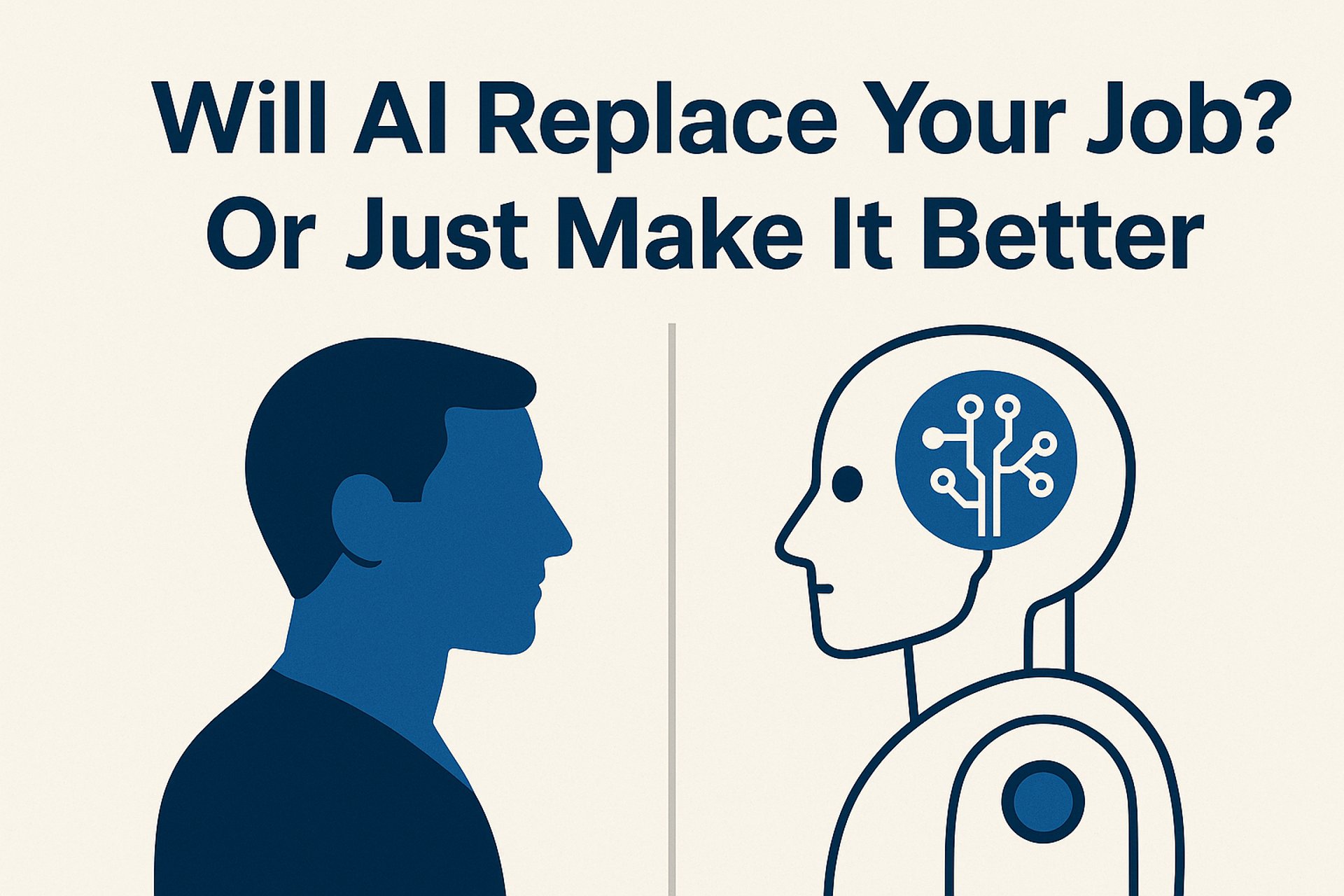
The Future of Work: AI Robots and AI Jobs
Explore the implications of artificial intelligence in the workplace. Will AI robots like Jarvis take over jobs, or will they become our smartest assistants? Or new AI jobs? Learn about the future of AI and its impact on employment.
AICOMMUNITYTECHNOLOGYEDUCATION


Will AI Replace Your Job? Or Just Make It Better?
Imagine waking up one morning and finding out that your work is being done by an AI robot like Jarvis. Sounds like something straight out of a science-fiction movie, right? But with the powerful rise of Artificial Intelligence (AI), it has got many people wondering – is this the future we are heading towards? Will AI take away our jobs or will it be our biggest and smartest assistant?
Let’s understand in detail what exactly is going on and what impact it will have on all of us in the future.
AI Is Changing Work — But Not How You Think
There is no doubt that AI is changing the way we work. From chatbots that answer our questions to powerful AI tools like ChatGPT, Gemini, Grok that help us write emails or code, write content, etc., we are already living in an AI-assisted world.
But the truth is: AI does not “think” like humans. It follows patterns, mines data and performs repetitive tasks with great perfection. It is fast and efficient – but not imaginative, intuitive or emotionally intelligent.
This means it does not threaten all types of jobs… only parts of them. Meaning some jobs will disappear completely.
The Jobs Most Likely to Be Replaced
It is important to acknowledge that some job roles are more vulnerable to automation than others. Positions characterized by repetitive, rule-driven tasks are particularly at risk. Examples of such roles include:
Data entry clerks
Telemarketers
Basic bookkeeping
Factory-line workers
These jobs typically involve activities that artificial intelligence can perform more quickly and with greater accuracy.
However, even in these areas, AI may not be able to perform all of the work. Many organizations prefer to use AI as a tool to assist human employees rather than eliminate them altogether. This decision is not just based on cost considerations; factors such as quality, adaptability, and human empathy also play important roles.
The Jobs That Are Being Supercharged by AI
Now, let’s dive into the exciting part : job growth.
AI isn’t just about replacing jobs; it’s about enhancing them. Professionals in various industries are
leveraging AI to improve their efficiency and speed :
Doctors are utilizing AI tools to identify diseases sooner and with greater accuracy.
Marketers are harnessing AI to analyze trends, forecast customer behavior, and tailor advertisements.
Software developers are employing AI assistants like GitHub Copilot to streamline coding and debugging processes.
Writers and content creators are using platforms like ChatGPT, Gemini, Grok, and Deepseek for brainstorming, editing, and outlining their work.
In these positions, AI acts as a valuable ally rather than a rival.
Working With AI: The New Normal
There's a mindset shift here: AI won't replace you. Instead, it will help you do your job better and faster.
Think of it this way: the calculator didn't replace math - it just made calculations faster. Google didn't replace memory - it just made information easier to access.
AI is the same way. It can automate boring tasks, allowing us to focus on more meaningful work like creative thinking, human connection, problem-solving - things machines can't do (yet, and maybe never).
How to Stay Relevant in the Age of AI
Instead of fearing AI, prepare yourself for the future by learning how to use it.
Here's how:
Develop soft skills: communication, empathy, leadership - these can't be automated.
Learn how AI works - a good understanding of it can help you achieve your dreams.
Upskill regularly - platforms like Coursera, Udemy and LinkedIn Learning offer AI-related courses.
Stay curious: The most valuable employees in the future will be the most adaptable.
Remember: AI doesn't replace people. People who use AI will replace those who don't.
The Future of Work: Humans + Machines
We are entering a new era — not of man vs. machine, but of man with machine.
As AI continues to evolve, new roles will emerge: AI trainers, prompt engineers, automation consultants, and more. These jobs didn’t exist a few years ago, but they will be common tomorrow.
The future belongs to those who are willing to learn, adapt, and grow.
Final Thoughts
So, will AI take all of our jobs?
Maybe some parts of it – especially the boring work. But for the most part, AI is likely to make your role better, making you more productive and creative. It’s not about humans versus robots. It’s about finding a way to build teams.

